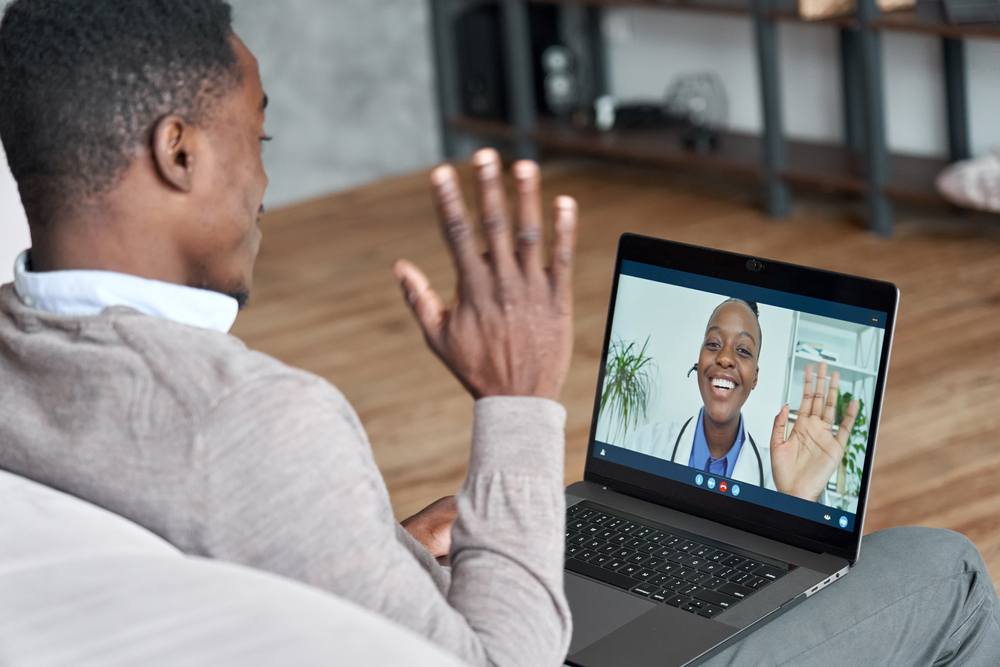A study by Deakin University suggests the removal of long telephone consultations from the Medicare Benefits Schedule will leave vulnerable patients behind.
An article published today in The Medical Journal of Australia has warned of the consequences of reducing access to long telephone consultations subsidised by the Medical Benefits Schedule (MBS).
The Australian Government expanded the subsidisation of telehealth consultations in March 2020 as a temporary measure to deliver remote care and reduce coronavirus disease 2019 (COVID-19) transmission in general practice settings. Since then, more than 99 million telehealth GP consultations had been provided in Australia as of October 2022.
However, these temporary measures expired on 30 June 2022, including access to subsidised long consultations (longer than 20 minutes).
Patients who required such consultations were encouraged to move to video consultations instead.
“The evidence that underpins the removal of [these] MBS items … is unclear, and indirectly suggests that patients who require long telehealth consultations can only achieve better outcomes through video consultations,” the researchers wrote.

There are some reported advantages to video consultations over telephone consultations. Video allows for better rapport to be established between the doctor and patient, while also providing more visual cues about the patient’s living situation. Video consults can also allow for improved diagnosis accuracy and decision making. Despite this, uptake of video consultations by GPs has been low (here and here), with GPs reporting that telephone consultations are much simpler to use and provide the same Medicare rebate as video consultations.
“When the government announced that they will continue with the expiry of long telephone consults, we were wondering about the patient and provider implications of this [announcement],” Article author Dr Feby Savira told InSight+.
“The government may be pushing to increase uptake of video consultations, which could be the right path forward, but this should be done without compromising Australians from receiving the care that they need.”
Using data from 140 regional primary care practices in Western Victoria, the researchers found a significant increase in telehealth consultations, after the Medicare expansion was introduced in March 2020. Utilisation of telehealth consultations has since declined, and by June 2021 remained steady at around 10% of GP consultations.
“We found evidence of substantial use of long telephone consultation and little evidence to support its removal,” Dr Savira said.
Although there was a high uptake of video consultations at the onset of the COVID-19 pandemic, this only occurred in affluent areas and in areas closer to urban centres. Older patients, minority groups, people with socio-economic disadvantage, and people in rural and regional areas are less likely to have the digital literacy and infrastructure required to access video consultations (here and here).
“The expiry of long telephone consultations has strong equity implications,” Dr Savira said.
“It will be important for the government and health care providers to work together to reduce some of those barriers to video consultations, such as ensuring we have the right infrastructure especially in rural areas, improve digital literacy in both patients and providers, and reduce digital divide especially in vulnerable groups.”
The article’s authors argue that until there is sufficient research into the benefits of video consultation over telephone, and until issues of inequity in access and digital infrastructure are targeted, long telephone consultations should not be removed from the MBS.
“[There is] urgent need for more evidence to understand when face-to-face or video are clinically and experientially better than telephone consultations,” Dr Savira said.
“Patient and GP perspectives should also be considered when informing the evolution of MBS items … I think we have not explored enough into how we should really be using [telehealth] to provide health care for Australians and ensure no one is left behind.”
Subscribe to the free InSight+ weekly newsletter here. It is available to all readers, not just registered medical practitioners.

 more_vert
more_vert
My patient population is old and vulnerable. They are not particularly mobile.
Probably 10% don’t have a computer and still rely on a land-line phone.
Those that have a mobile phone often have it put away “for emergencies” and many are not smart phones, and have large number pads for the sight-impaired.
A “Straw Poll” of my patients suggests that at least 30% do not have access to, or the ability to use video calls.
Each time I have raised this as a comment in the past for news articles promoting video calls, I do get “beaten down” with reply comments suggesting that “all the oldies have been Skyping their kids since Covid”.
This is just not true.
Most of those articles were authored by people with a vested interest, either setting up companies providing video consultations, or doing research or providing some business model involved in that industry.
This was rarely declared up front, but occasionally noted withing the body of the article.
I am a solo practitioner, so establishing a rapport with my long-term patients is generally not an issue.
Books are closed, so new patients are rare, and I accept best seen in person.
Again, there is a significant proportion of patients unable to access video consultations.
Maybe there needs to be some exception for these patients? or a special item number?